ANEC-CEN/CENELEC webinar ‘Inclusive Standardization - Enhancing the involvement of societal stakeholders and SMEs in the standard development process’
We are thrilled to invite you to our joint ANEC-CEN/CENELEC webinar ‘Inclusive Standardization - Enhancing the involvement of societal stakeholders and SMEs in the standard development process’ that will take place on 27 June 2024 (10:00 – 11:00). This webinar will provide an overview of the rights of the 'Annex III organizations' - ANEC, ECOS, ETUC and SBS - in the CEN and CENELEC Technical Bodies and their added-value to the European Standardization System. As Partners of CEN and CENELEC, these experts representing civil society & SMEs benefit from specific rights and obligations to participate in TCs and WGs. Existing tools and tailored mechanisms dedicated to ensure their effective participation will be presented. In particular, the Opinion Mechanism will be described, together with the role of TC Chairs and Secretaries in the process. Targeted audience: CEN and CENELEC Technical Body Officers. Speakers: Deborah WAUTIER, Project Manager Stakeholders Engagement at CEN-CENELEC, and Chiara GIOVANNINI, Senior Manager Policy & Innovation, Deputy Director-General at ANEC. Participation is free of charge, but registration is mandatory. Book your online seat. |
Horizontal
ANEC General Assembly 2024
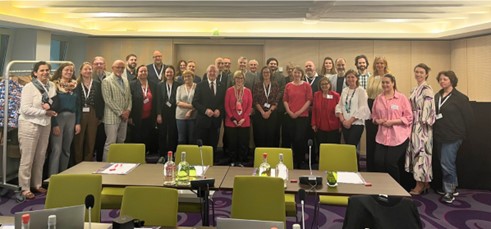
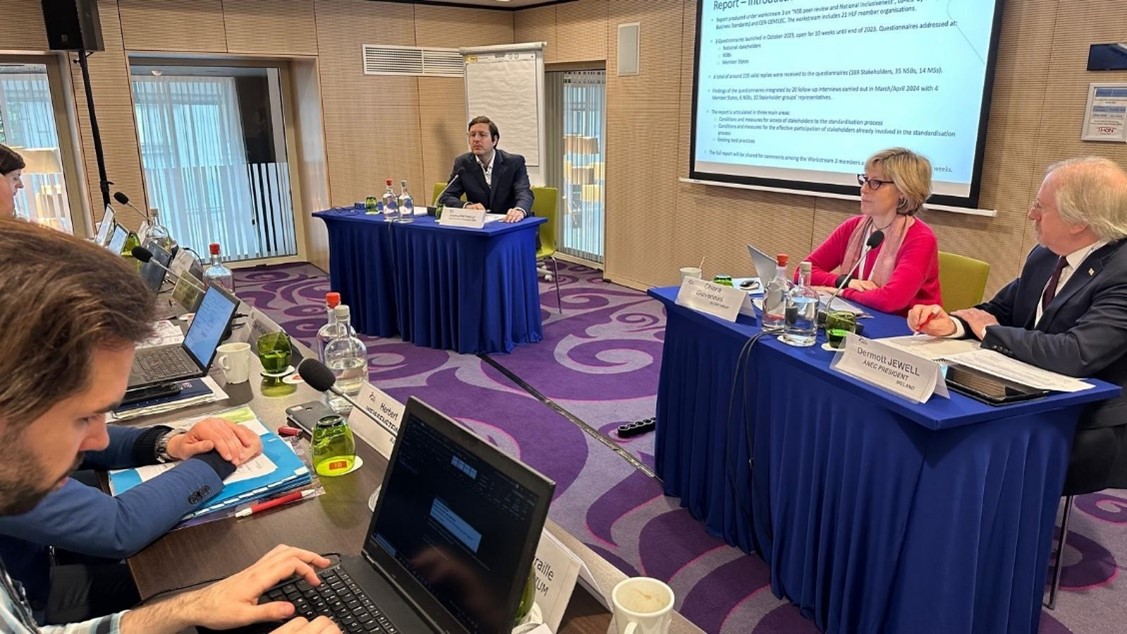
The 35th ANEC General Assembly meeting was held in Brussels on 11 and 12 June 2024.
On the first afternoon, the President delivered a report, which included a presentation of the ANEC Annual Review 2023/2024. The members welcomed a presentation from Pinuccia Contino, Deputy Director, DG JUST B.4 on standardisation and the next European consumer agenda. The presentation was followed by a report from the ANEC Secretariat, given by ANEC Deputy Director-General.
On the second day, members welcomed another guest speaker presentation. Andrea Raffaelli, Small Business Standards (SBS) & co-leader EC High-Level Forum on Standardisation Workstream 3, presented about Driving inclusiveness in standardisation: Findings of the WS3 peer-review of inclusiveness at national level. Furthermore, the ANEC Secretariat provided an update on wide-ranging matters, including the adoption of the 2023 accounts and the approval of the 2024 budget. The review of Regulation (EU) 1025/2012 was also discussed, especially within the context of the present EC public consultation.
Read the ANEC Annual Review 2023/2024.
Tack, Jens Henriksson!
We are delighted to recognise and honour the exceptional contributions of Jens Henriksson who has resigned as the Swedish member of ANEC after more than 25 years in post. Jens's commitment has played a pivotal role in helping ANEC achieve its mission to be the European consumer voice in standardisation.
In addition to his unbroken service in the ANEC General Assembly and ANEC Steering Committee since 1998, Jens is a former ANEC Vice-President, and former Chair of the Accessibility Working Group. He has also been an expert in other ANEC Working Groups and Project Teams, as well as the formal representative of ANEC in ISO/COPOLCO.
Although we are saddened by his decision to move from the Swedish Consumers Association, we wish him the very best in his future endeavours. We remain hopeful that our paths will cross again, noting his new position in the Swedish Institute for Standards (SIS).
Tack, Jens!

SR of ISO/IEC Guide 74:2004
ISO/IEC Guide 74 Graphical symbols – Technical guidelines for the consideration of consumers’ needs has been submitted to Systematic Review (SR).

Example of a standardized and registered graphical symbol
In its reply to the Systematic Review, ANEC expressed the wish for the Guide to be revised and updated.
Validation and registration of graphical symbols through the relevant ISO and/or IEC committees (ISO/TC 145, ISO/TC 10, IEC/TC 3) is very important. We therefore asked to gather all information in this respect in one clause of the Guide and to also include reference to guidance material.
As it is important that graphical symbols are accessible also for people with visual impairment, ANEC asked for the introduction of provisions for tactile symbols and further provisions for colour blindness in the Guide.
We suggested to include a reference to the ISO Online Browsing Platform (OBP), in order to facilitate the search for graphical symbols.
Finally, as Guide 74 contains symbols which are important for the safety of consumers and in order to promote the use of the Guide, ANEC expressed the wish of making the Guide freely available, as is already the case for other ISO/IEC Guides (read the ISO/IEC Guides).
Enhancing national participation in standardisation
ANEC was delighted to contribute to a workshop held under Workstream 3 of the EC High Level Forum on Standardisation. The workshop, “Driving inclusiveness in standardization: how to strengthen national participation?”, was held on 5 June. The event was co-hosted by SBS and CEN-CENELEC, with the support of the Belgin Presidency of the EU.
The meeting presented the findings from the questionnaires launched by SBS on the topic. Key challenges identified through the questionnaires and throughout the day of discussions included low stakeholder awareness, insufficient resources, and the complexity of the processes. Stakeholders such as Maureen Logghe (Belgian Government) and Sophie Muller (EU Commission) emphasised the importance of collaborative efforts, anticipating the development of 1.000 new standards to support digital and green transitions.
Sectoral associations were noted for effectively filling gaps met by smaller stakeholders, while the Annex III organisations - ANEC, ECOS, ETUC and SBS - were praised for their crucial bridging role. Panel discussions highlighted the need for simplified processes, better funding at national level, and increased stakeholder engagement.
In a second panel, ANEC Programme Manager Michela Vuerich conveyed that, as with other stakeholders, national consumer organisations face challenges such as technical complexity, lack of capacity and awareness, and limited influence compared with industry in standardisation activities, which ANEC addresses through the training of its experts, European coordination of the consumer standpoints on standards for dissemination at international, regional and national level, and collaboration with other Annex III organisations on enhancing the inclusiveness of the standardisation system. As final recommendation, she emphasised the need for sufficient national funding and education programmes to improve stakeholder representation and effective participation at the national level, to complement the efforts done at the European level.
Draft recommendations from the workstream will be prepared aimed at strengthening the collaboration among stakeholders, Member States, and NSBs, promoting awareness, and continuous improvement in the standardisation processes.
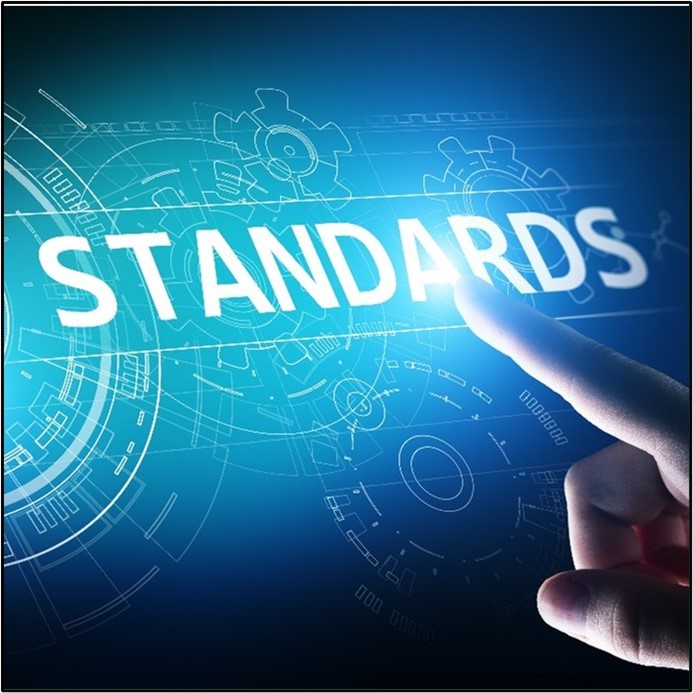
Child Safety
ANEC Child Safety WG jubilee meeting
The 50th meeting of the ANEC Child Safety Working Group was held in Brussels on 20 and 21 March and attended by 21 experts. We were especially pleased to welcome a new expert from Portugal.
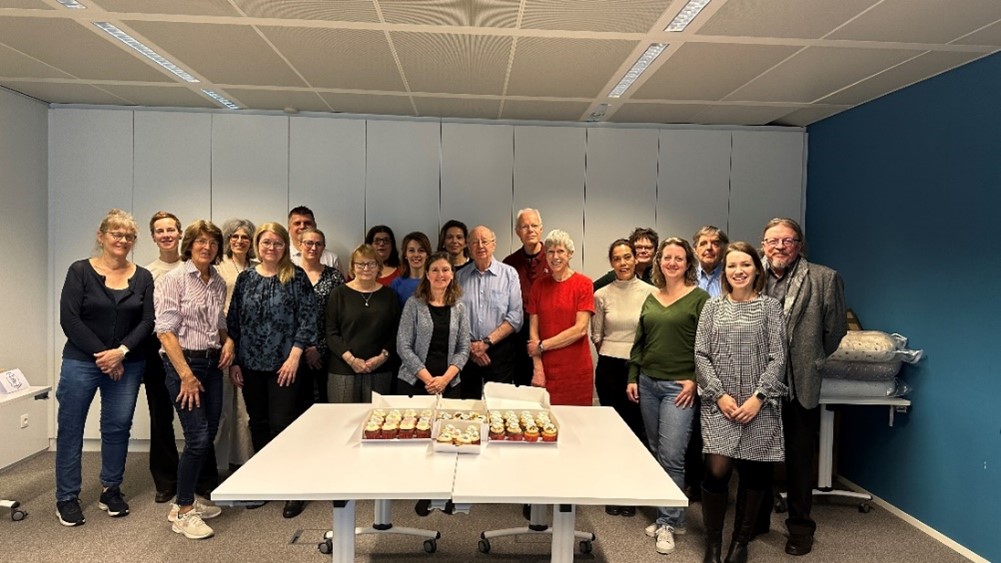
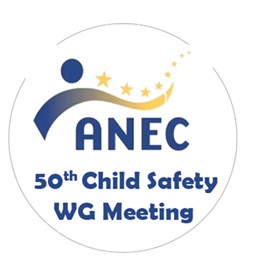
Our experts discussed achievements, upcoming challenges and priorities in standardisation work on toys, sports & playground equipment, childcare articles & children’s furniture, and other products related to child safety.
We were pleased to welcome guests from EC DG JUST and EC DG GROW.
DG JUST presented the new General Product Safety Regulation (GPSR) and highlighted the key aspects of the GPSR, which aims to modernise and strengthen the framework for product safety in the EU. The impact of the GPSR on the standardisation process was also explained, of particular interest to ANEC as many standards for children’s products fall under the GPSR.
DG GROW provided an update on the revision of the Toy Safety Directive. This revision aims to address emerging risks and incorporate the latest scientific and technical knowledge to better protect children from harmful toys. Progress of the Toy-ADCO WG in developing guidance on the classification of (toy) trampolines was also noted. This work started following a request from ANEC in 2023. The guidance is important to ensure that trampolines sold as toys meet safety criteria to prevent injuries.
Adding to the scientific discourse, two Swedish doctors presented head injuries in children. They shed light on the prevalence and mechanisms of such injuries, emphasising the need for improved protective measures and awareness. The doctors highlighted that head injuries remain a significant concern, particularly in young children, and called for enhanced safety features in child-related products, such as helmets and car seats. Our experts very much welcomed the presentations which we will use as references during the development of standards for children’s products.
ANEC Child Safety WG training exercise
The ANEC Child Safety WG meeting also included a practical training exercise for our experts on the risk assessment of baby nests, products that are gaining popularity among parents. This session aimed to equip participants with the skills necessary to evaluate potential hazards associated with these products, and to contribute to the standardisation process. Through hands-on activities and scenario analysis, attendees learned to identify the most common risks posed by baby nests.
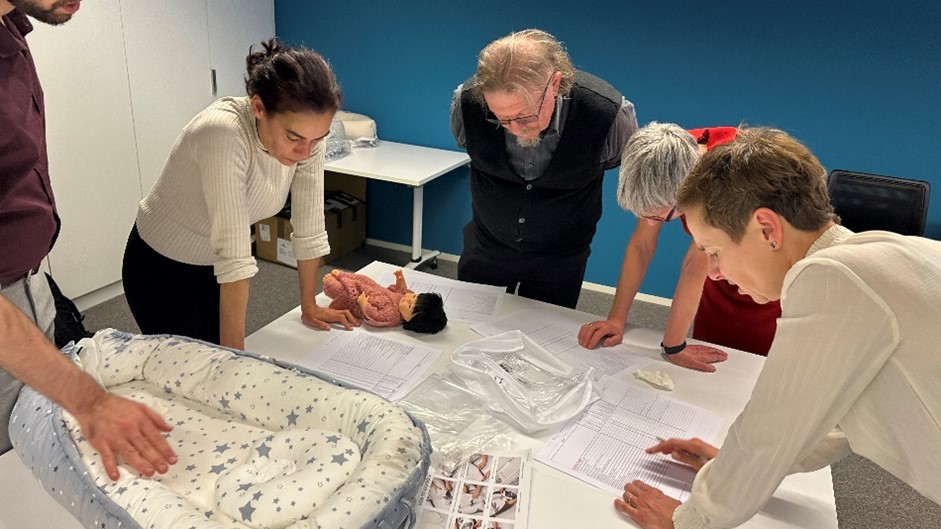
Improved pushchair standard
ANEC welcomes adoption of the new European standard EN 1888-3 Child care articles - Wheeled child conveyances - Part 3: Pushchairs intended for leisure sport activities. The document specifies the safety requirements for pushchairs when used for running, jogging or skating (excluding ice skating).
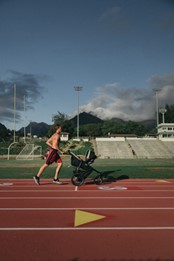
ANEC was active in the development of the standard. We were happy to see that requirements for the visibility of the pushchairs (reflectors) were introduced, following a request from ANEC and our colleagues from the DIN Consumer Council.
As EN 1888-3 needs to be read in conjunction with the two other European standards for pushchairs (EN 1888-1:2018+A1:2022 and EN 1888-2:2018+A1:2022), we hope similar requirements for visibility will be introduced in those standards. During the recent Systematic Review, ANEC asked for revisions of EN 1888-1 and EN 1888-2. We will provide suggestions for the revisions during the coming months.
Proposal to include E-sports fails
In April, ANEC expressed concerns on a draft decision to include E-Sports in the scope of CEN/TC 136. Although we acknowledged the importance of standardisation to address E-sports, ANEC was not convinced that CEN TC 136 is the appropriate committee to deal with it. Contrary to sports, playground and other recreational facilities and equipment, where the user is physically moving, E-sports do not involve physical moving activities.
In addition, we referred to several aspects of E-sports which are dealt with by other CEN (or CENELEC) committees, e.g. the seats in which the user is seated while playing (CEN/TC 207) and the electro-technical aspects (CENELEC/TC 108X).
ANEC also wondered whether CEN/TC 136 has the expertise to address other important aspects in relation to E-sports, such as addiction, mental health, harassment and online gambling.
In line with the ANEC reply, several national standards bodies expressed concern. As a result, the draft decision failed and the issue will be put on the agenda of the next CEN TC 136 plenary meeting, which will be held in February 2025.
Council adopts position on TSR
On 15 May, Member States adopted an encouraging Council position to make toys safer for children. The position follows that of the European Parliament, which was adopted in March.
We welcome that the Council in its position sets out toy-specific obligations for providers of online marketplaces, in addition to those required by the existing legal framework (Digital Services Act (DAS); General Product Safety Regulation (GPSR)).
We thank the Belgian and Spanish Council Presidencies for their hard work and we count on further interinstitutional negotiations to result in a new EU Toy Safety Regulation which gives children the highest protection they deserve when playing, including lower limits of harmful chemicals, mental health to be a criterion for toy safety, and a shorter transition period for companies to abide by the rules.

ANEC article in ANEC e-Newsletter ed. 2 – 2024.
Accessibility
ANEC moderates at Microsoft Accessibility Summit 2024
ANEC was delighted to moderate a Panel at the Microsoft Accessibility Summit 2024, organised by the European Disability Forum (EDF). Titled “Reflecting on accessibility achievements & the road ahead in the next 5 years”, the Panel was moderated by Chiara Giovannini, Deputy Director-General and Senior Manager Policy and Innovation at ANEC.
Chiara led a group of experts in a thorough discussion about past successes and future goals in accessibility. Each panellist shared a personal victory in accessibility, offering insights into why these milestones were particularly meaningful to them. Their stories not only highlighted the progress made but also underlined the ongoing commitment needed to further inclusivity.
The discussion then moved to enforcement and implementation of accessibility measures, the integration of accessibility into public procurement, and the importance of disseminating knowledge through training and standardisation.

36th meeting of ANEC Accessibility WG
On 29-30 April 2024, ANEC held its 36th ANEC Accessibility WG meeting in Brussels. Our experts discussed standards work on the accessibility of lifts, accessibility to the built environment, assistance dogs, eAccessibility, assistive products & services; ergonomics.
Furthermore, there was a presentation on the European Accessibility Act SReq (M587) by the European Commission. Also, up for discussion were the revision of standards under the SReq: EN 17210, EN 301 549, EN 17161, as well as the new standard on Accessibility of non-ICT information related to products, and the new standard on Accessibility of support services related to products and services (help desks, call centres, technical support, relay services and training services).
The meeting's conclusions identified action points aimed at improving the accessibility of products and services through standards in the upcoming period.
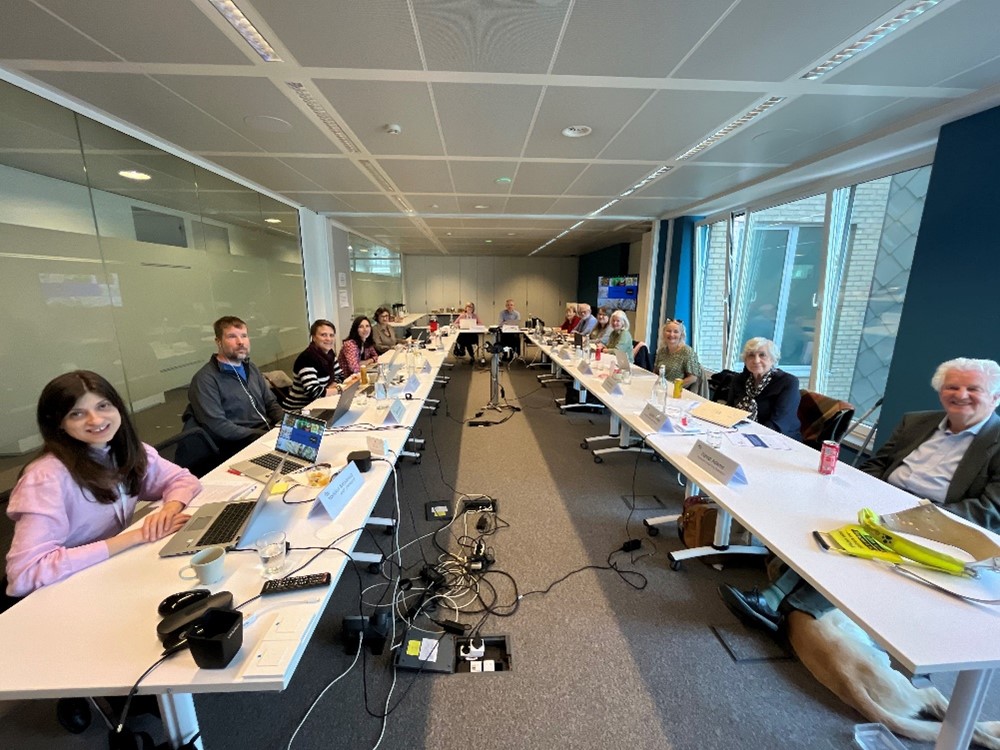
Domestic Appliances & Child Safety
Button battery awareness day
During the first half of June, ANEC lent its support to the European Society of Paediatric Gastroenterology, Hepatology and Nutrition (ESPGHAN) and EPBA, the European Portable Battery Association, in their campaign to raise awareness to consumers on the risk of button battery ingestion by children. We welcome 12 June now being identified as Button Battery Awareness Day, and will continue to strive for standards to reduce children’s access to batteries contained in the product or its packaging.
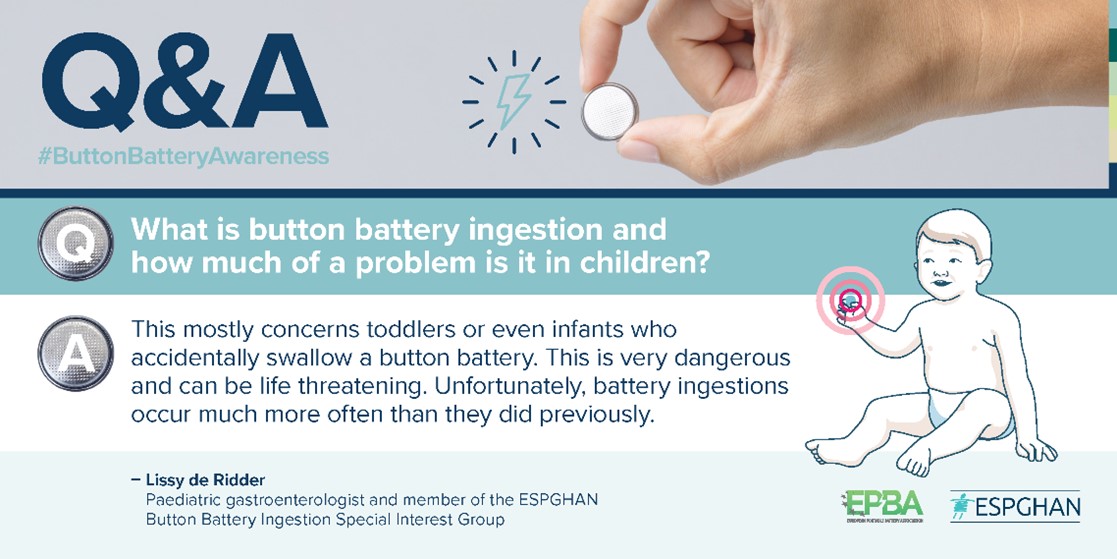
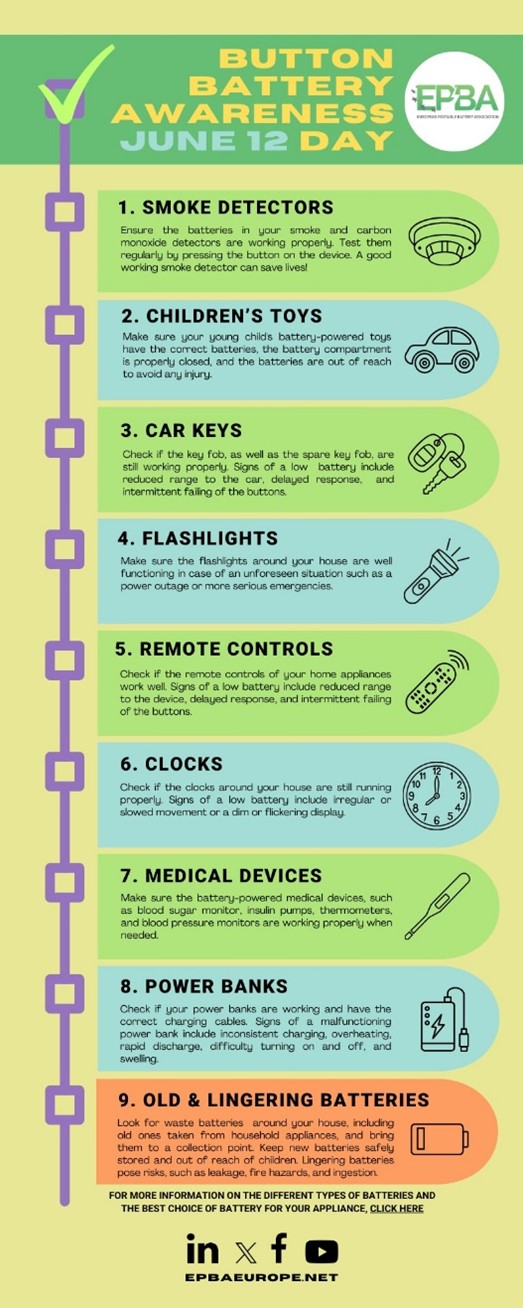
Sustainability
EPBD recast adopted
In April 2024, the recast Energy Performance of Buildings Directive (EPBD) was formally adopted.
A central pillar of the European Green Deal and “Fit for 55” package, the EPBD sets out the plan to gradually decarbonise the building sector, while bringing benefits to consumers. According to the European Commission, buildings in the EU are responsible for 40% of our energy consumption and 36% of greenhouse gas emissions.
With the EPBD, Member States will need to review their Energy Performance Certificates (EPCs) schemes, an essential tool to assess the energy performance of buildings and guide renovations.
EPCs are also essential for consumers to get information when renting or buying regarding the energy efficiency of the building. ANEC is part of the EU-funded project SmartLivingEPC dedicated to improving the methodology of EPCs and to evaluate additional parameters important for consumers, such as water consumption or noise pollution.
As part of the Next Gen EPC cluster, we are collaborating with other EU-funded projects working on EPCs to identify best practices and give evidence-based recommendations for the EC to guide Member States with the implementation of the EPBD. We attended a dedicated conference in May focused on cluster projects results and EPBD implementation and we will keep following this process.

Empowering Consumers in E-Waste collection: ANEC Webinar Highlights
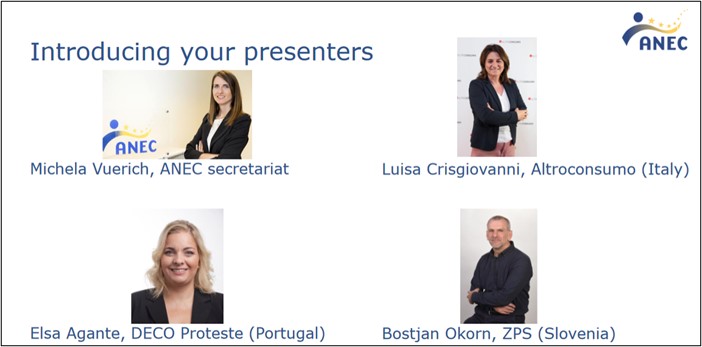
On June 4, 2024, ANEC hosted the webinar, "WEEE & National Initiatives: Consumer Organizations' Perspective," focusing on the European legislative framework for Waste from Electrical and Electronic Equipment (WEEE) and national initiatives to empower consumers in reducing e-waste. ANEC’s Michela Vuerich briefly presented the WEEE Directive's scope, objectives, and review process. Luisa Crisgiovanni from Altroconsumo highlighted Italian initiatives to enhance collection rates for small devices and batteries, while Elsa Agante from DECO Proteste shared successful practices from Portugal and stressed the importance of repair over replacement. Boštjan Okorn from ZPS presented Slovenian findings on consumer habits, emphasizing the need for closer collection points and promotion of circular design. Speakers stressed the significant gap between sold and collected appliances, advocating for prevention, repair, and increasing consumer trust in refurbished products.
We will continue discussing this increasingly important topic and our next steps in the ANEC Sustainability WG.
New standards on Circular Economy

Image created with AI
ISO has released a set of circular economy standards developed by ISO TC 323 ‘Circular economy’ where ANEC has been represented by Dr Ricky Spencer. The three newly-published standards are:
ISO 59004:2024 Circular economy — Vocabulary, principles and guidance for implementation
ISO 59020:2024 Circular economy — Measuring and assessing circularity performance
ISO 59010:2024 Circular economy — Guidance on the transition of business models and value networks.
We welcome these standards, as they establish a unified framework and common terminology for the circular economy. This is a significant step forward as international and European committees have previously failed to define, implement or measure circularity.
Consumers and the environment are at the core of the new standards. The systemic approach of using the economic, social and environmental systems to underpin the standards will contribute to the UN Sustainable Development goals. It is welcome that organisations, regardless of type or size, now have a reference point for the implementation of circular economy. Several national standards bodies have already adopted these international standards into their portfolios.
However, ANEC believes ISO 59004 could have extended its scope to include the resource-saving economy, addressing more than just resource circulation. You can read more about our perspective in ANEC position paper. We had also hoped for more prescriptive language in the standards, minimising ambiguity in the methods used for measuring and assessing circularity.
We see an important role for the newly established CEN Technical Committee 473 on Circular Economy to build upon the ISO standards and aid implementation of the European Circular Economy Action Plan.
For more information on the ISO standards on circular economy, you can watch the recording of the dedicated ISO Webinar.
Ecodesign
Durability of washing machines
Washing machines are an essential product in consumers' daily lives, yet their lifespan has decreased in recent years. Making these appliances longer lasting is crucial both for consumers and the planet.
CENELEC has submitted a draft standard to Enquiry: EN 50731 Durability – Measurement method for the assessment of the reliability of washing machines for household use details a test methodology for assessing the longevity of household machines.
The standard uses methods that respect real-life conditions, such as load quantities and washing temperatures, while accelerating real-usage patterns. Nevertheless, it will be key to monitor its success given the novelty of the standard and need to further validate results.
ANEC has been involved in the development of the standard and will continue to do so as part of our work under the EU-funded reaLIFEstandards project.

Digital Society
‘New Governance and Inclusiveness in AI Standardisation - how far have we gone?’
On 23 May, ANEC hosted a panel to discuss AI standardisation at the CPDPai 2024 Conference in Brussels. ANEC brought together the European Commission, CEN-CENELEC JTC 21, ETUC and SBS, allowing the audience to learn about the expectations for increased inclusiveness in AI Standardisation, which actions have been undertaken and what has been achieved so far. The panellists (Natalia Giorgi, Consultant in standardisation at ETUC; Sebastian Hallensleben, Chair of CEN and CENELEC JTC 21 ‘Artificial Intelligence’; Emilia Tantar, PhD, Chief Data and Artificial Intelligence Officer, Black Swan LUX S.A. & Head of Delegation, President of Luxembourg National Mirror Committee Standardisation on AI; and Thierry Boulangé, Deputy Head of Unit - Artificial Intelligence policy development and coordination, DG CNECT, European Commission) and acknowledged that challenges to participation in the process remain and that more actions, funding and training are still required to achieve the goal of better representation of consumer and civil society stakeholders in AI Standardisation. This discussion was moderated by ANEC’s Chiara Giovannini.
ANEC thanked the European AI and Society Fund for financing this event, and took the opportunity to tell the audience about ANEC’s activities to promote inclusiveness in AI standardisation through projects funded by Mercator and the European AI & Society Fund.
View the recording of our CPDP AI panel debate.
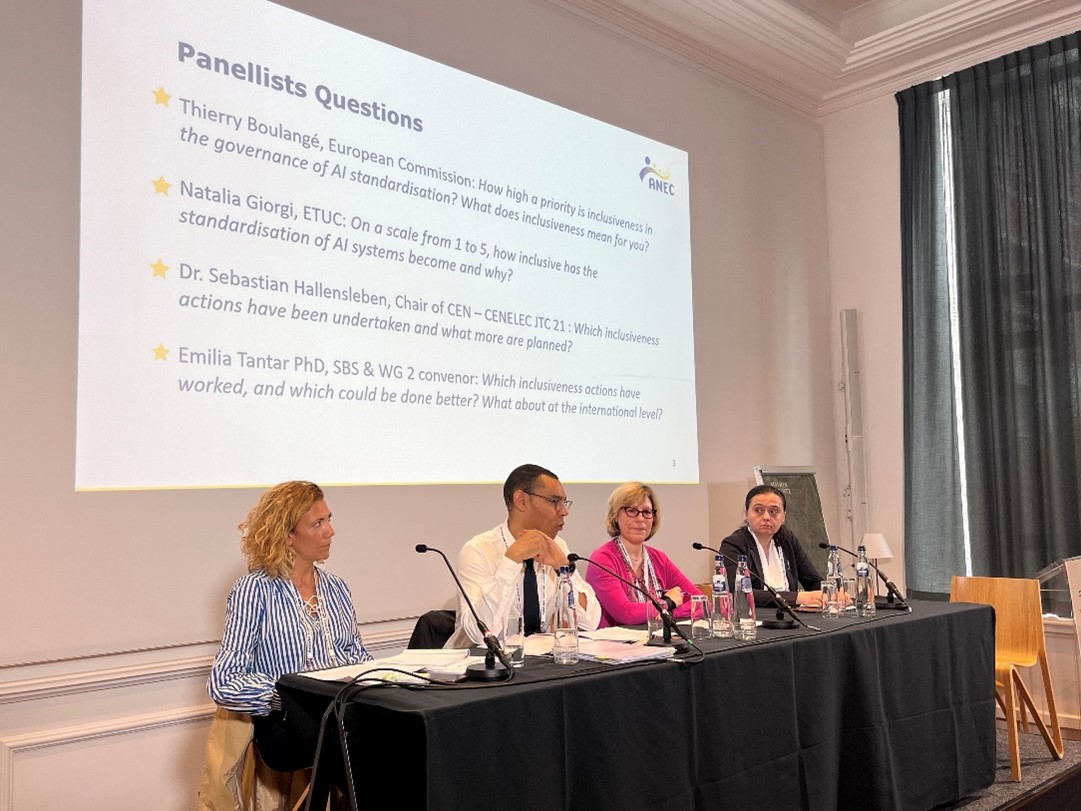
Services
ANEC Services WG meets
The ANEC Services WG held its annual meeting in Brussels on 24-25 April 2024, addressing diverse topics including horizontal and inclusive services, fire safety, citizen security, disaster management, postal and financial services, leisure, and online services.
Highlights included a presentation from BEUC on the Digital Fairness Act, Test-Achats' survey on consumer satisfaction with customer services, and updates from DG GROW on recognition of healthcare qualifications. Key discussions among our experts focused on standards for financial services, online terms, and healthcare, with DG SANTE providing insights on cross-border patient rights. The WG also emphasized its collaboration with The Hague University of Applied Sciences to advance research and innovation in service standards.

News from ANEC member countries
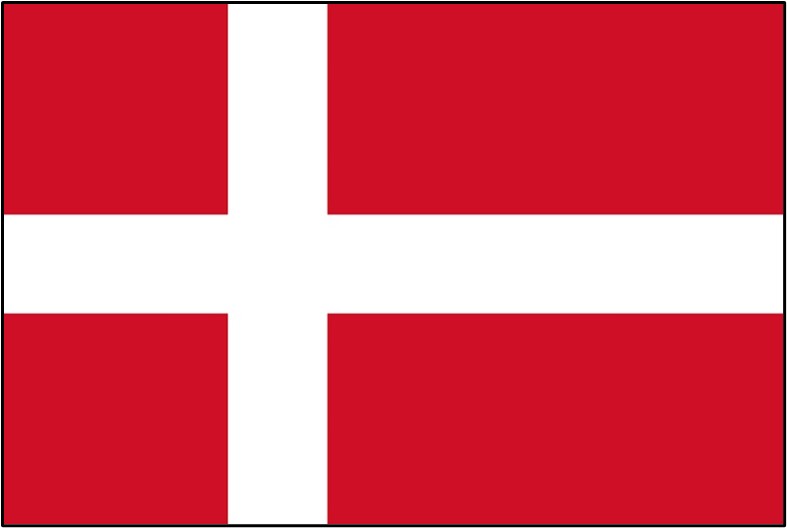
Denmark
The Danish Consumer Council THINK Chemicals has recently conducted tests on baby mattresses, toothpaste, and car shampoos to identify any presence of undesirable chemicals.
Baby Mattresses
Tests were conducted on baby mattresses for cribs to assess their content and emission of unwanted substances. Despite lacking the same regulations as toys, baby mattresses are frequently in contact with infants. Out of 12 mattresses tested, nine received the best rating (A-rating) for being free from unwanted chemicals. The remaining three received a medium rating (B-rating) due to low emissions of substances suspected of damaging our genetic material or low content of a potential allergen. While none of the chemicals found is illegal in baby equipment, they may contribute to overall chemical exposure and poor indoor air quality. The text provides tips for reducing chemical exposure in the nursery and recommends mattresses without unwanted chemicals.
See the full test of baby mattresses.
Harmful Substances in Toothpaste
Tests conducted on 31 fluoride toothpaste brands examined their content for substances that could be harmful to health and the environment. Products containing titanium dioxide, found in 11 toothpastes, received a medium rating due to its potential to accumulate in the body and damage genetic material. Substances suspected of being endocrine disruptors, such as parabens, triclosan, and methyl salicylate, were found in five toothpastes which received the lowest rating. Triclosan, particularly, has raised concerns for its environmental impact and potential health effects. However, fluoride, a common ingredient in toothpaste, differs from harmful fluorinated substances like PFAS, as it strengthens tooth enamel without sharing the same properties. While individual exposure may not pose immediate health risks, limiting exposure to such substances is advisable to minimize potential long-term effects.
See the full test of toothpaste.
Car Shampoos
Car shampoos often contain allergenic and environmentally harmful substances, making it challenging to find options free from problematic chemicals. Among 21car shampoos tested, 19 were found to contain allergenic preservatives or lacked complete ingredient lists. Despite efforts to obtain ingredient lists from manufacturers, many car shampoos failed to provide complete information, resulting in poor ratings. Only one car shampoo from Biltema received a positive rating, while others lacked transparency or environmental considerations. Washing cars at Nordic Swan-labelled car washes is recommended for environmental protection as they recycle water and reduce pollution. When washing cars at home, it is advised to choose shampoos without allergenic preservatives and follow proper disposal practices to prevent environmental contamination.
See the full test of car shampoos.
| List of meetings 2024 |
For comments or if you wish to write an article for the ANEC Newsletter, please contact: Helena CLARK (This email address is being protected from spambots. You need JavaScript enabled to view it.).



